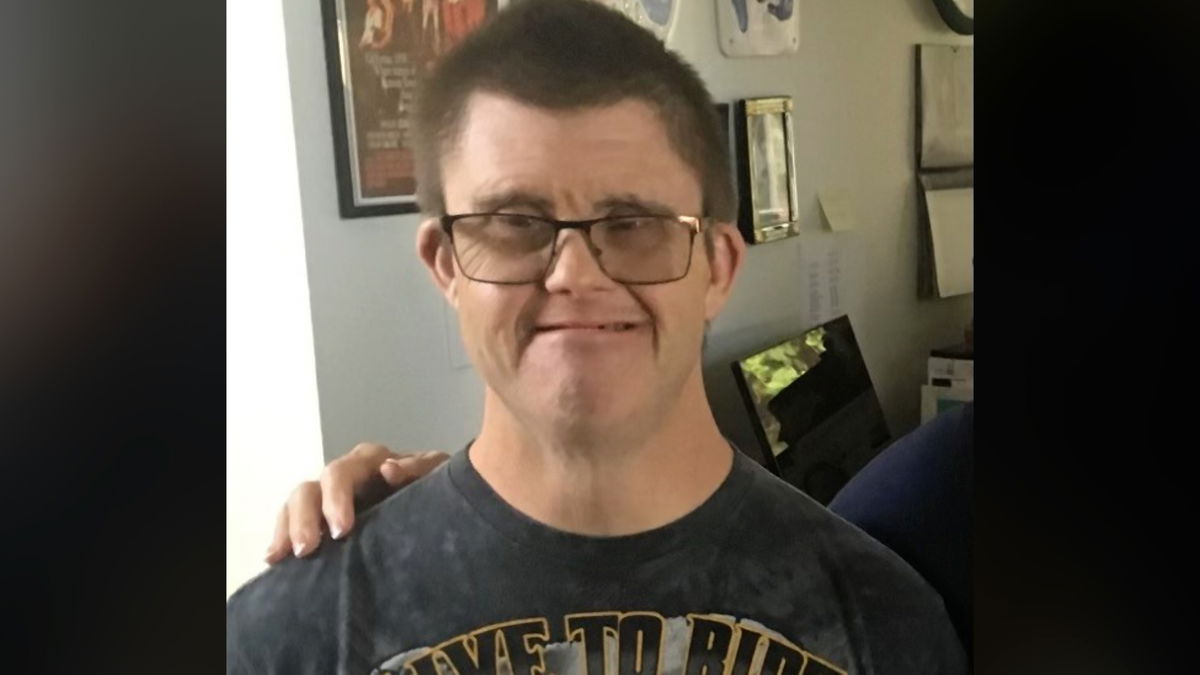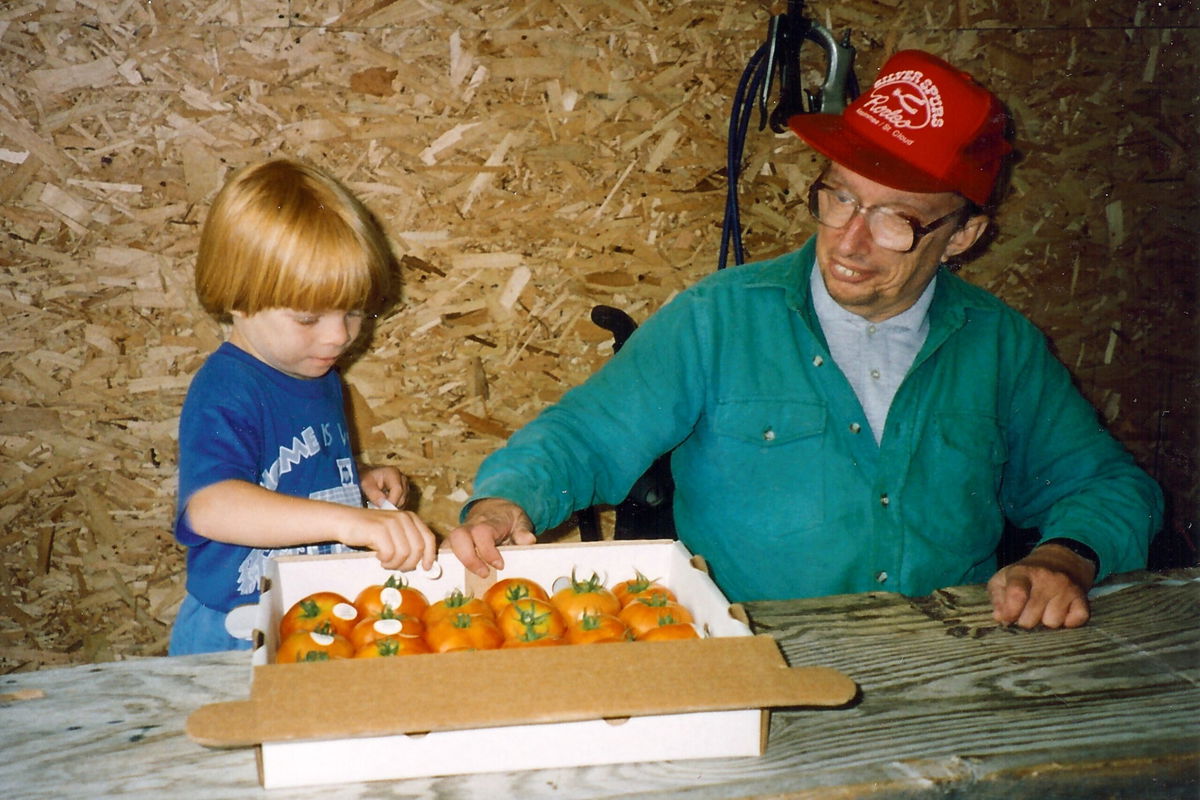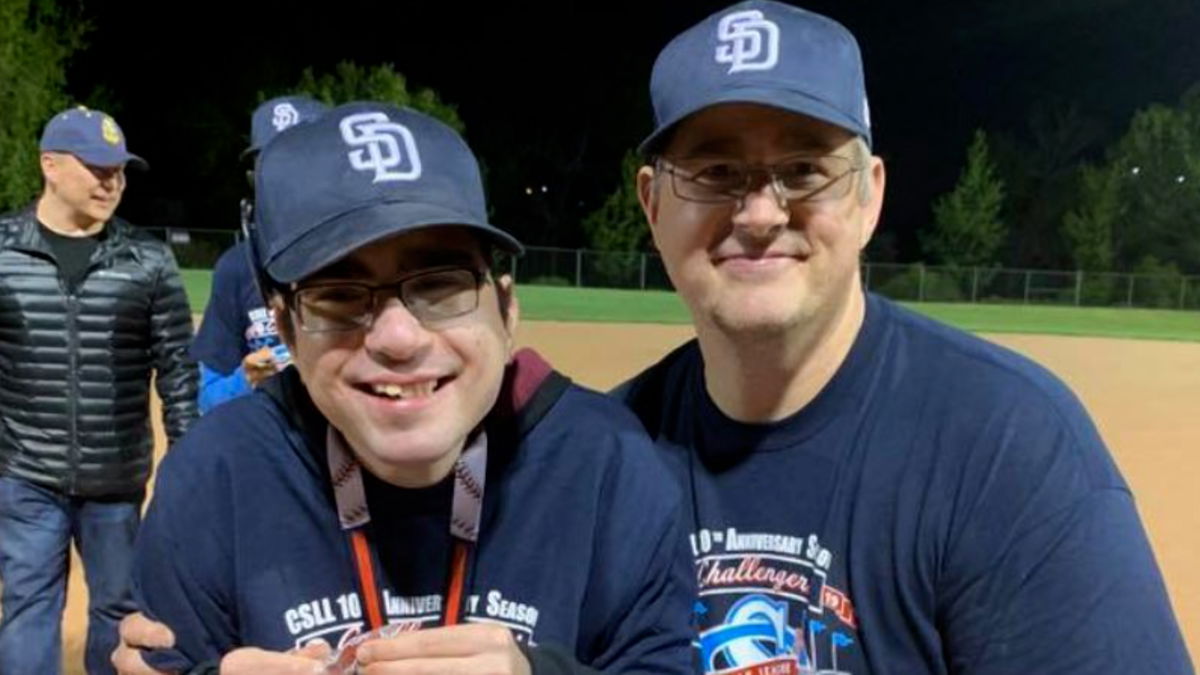Palmer Lake family gives new life to disabled adults
The CDC estimates that 11 percent of adults in Colorado have some type of mental disability.
Many of them still live with their parents, but what happens when those parents reach an age or condition where caring for their disabled child is no longer possible?
Robin Lambiotte was born with Down Syndrome.
"If you've ever met anyone with Down's Syndrome, they're awesome,” says his sister, Dominique Hodgin.
Robin currently lives close to his mom in California, but his mom is now in her 80s and developing dementia.

He has a sister who lives in Douglas County and is now working to bring him to Colorado. She hopes to find a place better than his group home setting in California.
"It’s a house that’s falling apart. There are holes in the walls and doors falling off, and nobody speaks English, and he was in a room by himself for a long time, and recently they moved him into a room with another resident her screams all night long,” she explains, “Last time I went home, my mom’s husband was going to take him back to the group home for me, and he didn’t want to go. Breaks my heart."
If an adult with disabilities suddenly needs a place to stay in Colorado, a spokesperson with the Department of Health Care Policy and Financing tells KRDO they will find a place for them.
However, it might not be the ideal setting or location because there is a shortage of housing for them.
For example, if a family in Colorado Springs needs housing for a disabled adult, that person might be sent to a group home on the western slope, if that’s the first available facility.
Group homes and other facilities for disabled adults are inspected regularly for health and safety compliance; however, there are few requirements beyond that.
That means it’s solely up to the care providers in a group home to decide how involved they are in the community, how much time they spend outside their bedroom away from a TV, or how much they interact with people with disabilities like themselves.
“There's a great housing crisis that not many people know about,” says Rich Caldwell.
A few years ago, Rich and Becky Caldwell created Hilltop Ranch, a lodge in a quiet wooded area outside Palmer Lake.

The name of the lodge comes from Matthew 5:14, which reads, “You are the light of the world. A town built on a hill cannot be hidden. Neither do people light a lamp and put it under a bowl. Instead, they put it on its stand, and it gives light to everyone in the house.”
The Caldwell’s own daughter, Sarah, who likes to be called "Buddy", has a rare genetic condition known as Jacobsen Syndrome.
From the time she was diagnosed at a young age, her parents faced a difficult question that other families like theirs face.

"Who will take care of Sarah when we no longer can?” recalls Becky.
They hope Hilltop Ranch can be the answer to that question for other families.
Their goal is to house nearly a dozen residents, who will have roles and responsibilities and be engaged in the Palmer Lake community, a strategy that has worked wonders for Sarah.
She has participated in parades and even said the pledge of allegiance at a recent city council meeting.

"She just shines. She doesn't have the words to express it, but her face just shines,” says Rich.
The problem for Hilltop Ranch is it can't accept Medicaid because the reimbursement is too low, so everyone who lives there has to cover much of the cost out of pocket, which comes out to around $6,000 a month.
The Caldwells hope to eventually be able to cover about 40 percent of each family’s cost through charitable donations, with those families covering the remaining 60 percent.
Along with support from a combination of social security income and Medicare/Medicaid, families in Colorado can also apply for a special Developmental Disabilities (DD) waiver, which provides additional funding to pay for housing and care.
The DD waiver is known as “the golden ticket” among families with disabled children in Colorado.
However, the waiting list for a DD waiver is long.
According to a 2021 HCPF Fact Sheet, "On average, individuals are on the waiting list for 8 years before receiving an enrollment authorization."
When they first put Sarah on the list at age 14, the Caldwells said the wait time was more like 15 years.
As a way to help make ends meet, and reduce the cost to its residents, Hilltop Ranch recently applied for assistance from Disabling Barriers, a non-profit that provides grants to organizations that serve people with disabilities.
They received $100,000.
The president of Disabling Barriers, Chris Robinson, has his own 29-year-old son with cerebral palsy.

"Probably the hardest thing I've ever had to figure out in my life is what's the care plan for my son later,” he says, “and I'm just one person. I mean there's tens of thousands in the state, I imagine millions across the country. They're all looking for a solution. It's not going to be solved by the federal government, it's not going to be solved by the state. The only chance we have to dig into this problem is at the community level. That's why we're so glad to be doing this right here, right now."
This year, 43 nonprofits applied for grants from Disabling Barriers, with 28 receiving at least some of the total funding which amounted to just over a million dollars.
The next round of funding opens up in August.
As for Robin, Dominique knows that at age 55, he is quickly approaching the average age when people with Down Syndrome pass.

She hopes his remaining time can be spent in a place like Hilltop Ranch, where he will make the most of it.
"I don’t know how much longer I have with him,” she says, “I want to make his last many years on earth... good."
